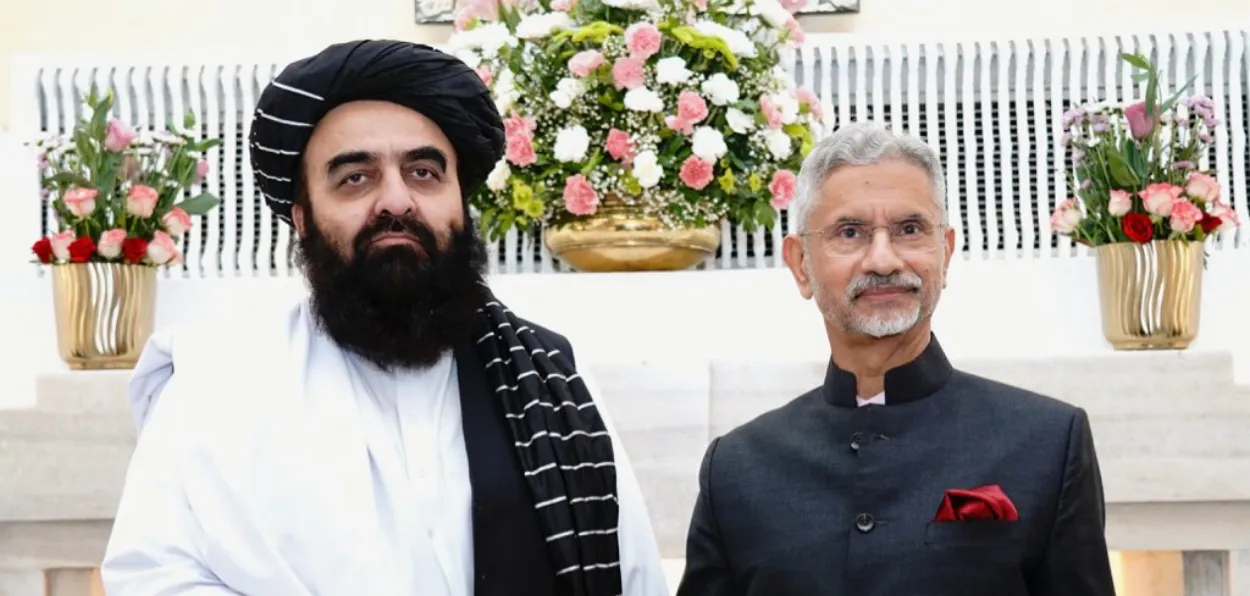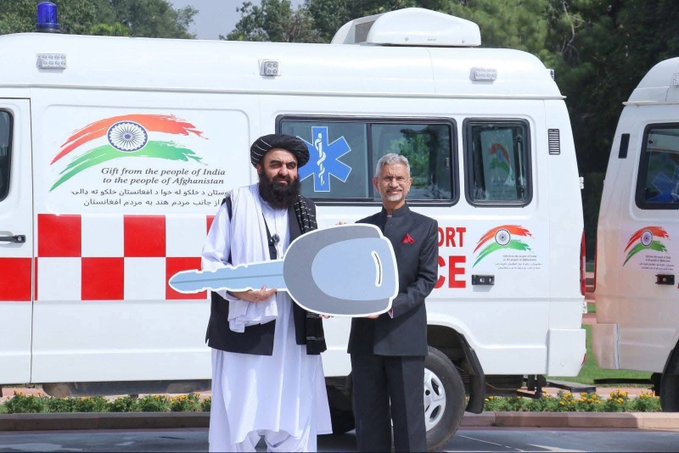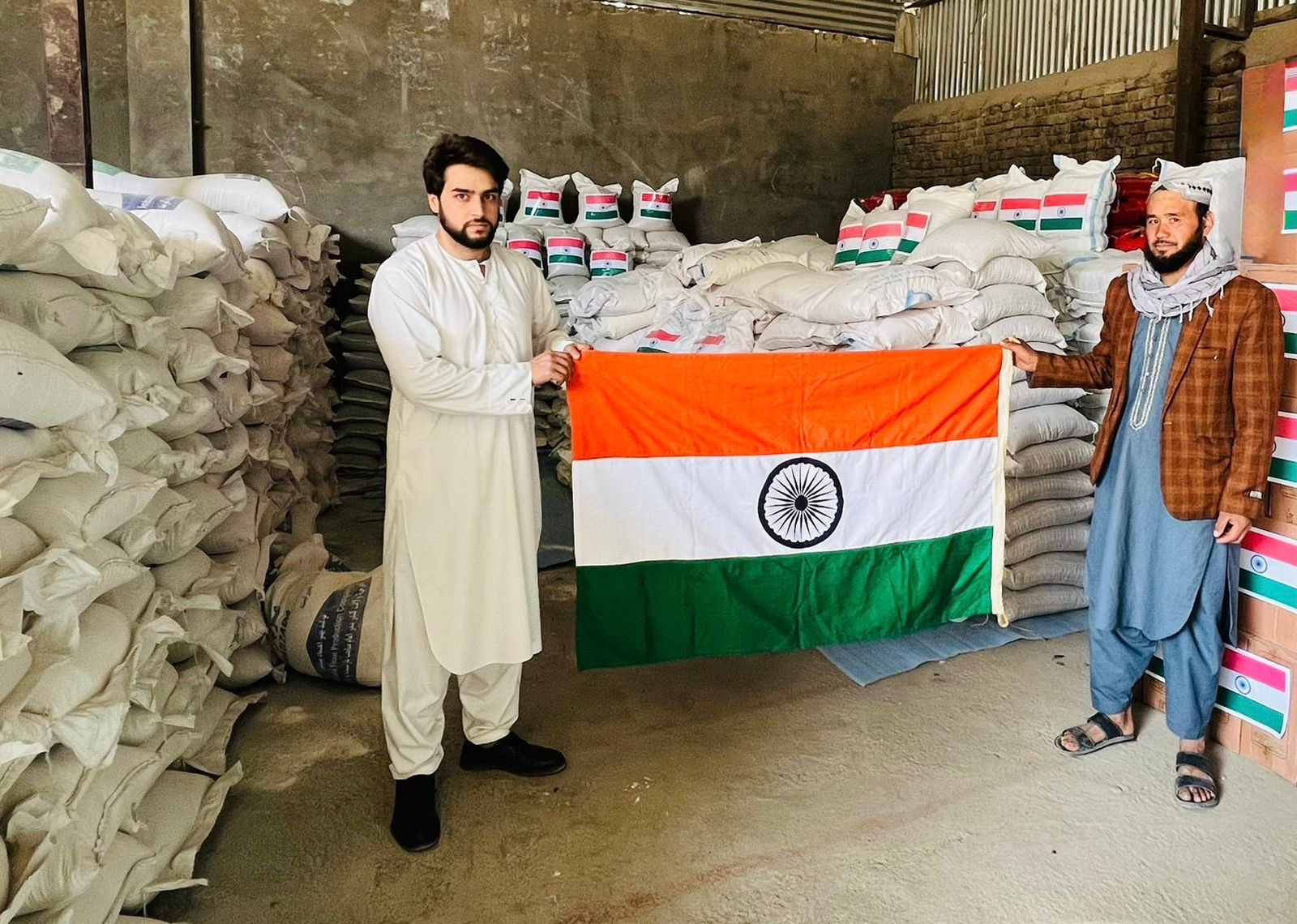
 Shankar Kumar
Shankar Kumar
Although India is yet to recognise the Taliban administration, the engagement between the two sides received a significant boost when New Delhi announced it would upgrade its Technical Mission in Kabul to an Embassy, during the historic visit of the Afghanistan's Acting Foreing Minister Amir Khan Muttaqi .
"India is fully committed to the sovereignty, territorial integrity, and independence of Afghanistan. Closer cooperation between us contributes to your national development, as well as regional stability and resilience. To enhance that, I am pleased to announce today the upgrading of India’s Technical Mission in Kabul to the status of Embassy of India,” External Affairs Minister Dr S Jaishankar said during his first-ever bilateral meeting with Amir Khan Muttaqi in New Delhi.
Muttaqi’s visit, which happened after the UN exempted him from his travel ban, is seen as a shift in India’s stance on the Taliban government with which New Delhi maintains strong humanitarian contacts.
However, the first diplomatic contact between India and the Taliban began in November 2024, when diplomat J P Singh, who is India's ambassador to Israel, held several meetings with Taliban representatives, including acting Taliban Defence Minister Mullah Mohammad Yaqoob, in Kabul.
Yet the strongest signals of New Delhi’s engagement came when Foreign Secretary Vikram Misri met the Taliban’s acting Foreign Minister Muttaqi in Dubai in January 2025.

EAM Jaishankar handing over symbolic keys of 20 ambulances to Amir Khan Muttaqi
On May 15, after the Pakistani terrorists killed 26 Indian tourists in Pahalgam, Kashmir, Jaishankar spoke with Muttaqi. They again spoke after a devastating earthquake hit Afghanistan in August.
Diplomatic and strategic significance of the visit
In a world where geopolitics is shifting rapidly due to multiple factors, including the US’s asymmetric approach to foreign policy, Muttaqi's visit carries significant diplomatic and strategic implications. It is what Dr Jaishankar underlined during their meeting. He said, “Your visit marks an important step in advancing our ties and affirming the enduring friendship between India and Afghanistan.”
This is the first ministerial-level visit from Afghanistan under the Taliban administration that captured Kabul in August 2021. It signals evolving regional dynamics, especially amid changing US policies and power realignments in South Asia.
It also reflects India’s attempt to pursue an independent and bold foreign policy amid a fluid geopolitical order. However, India's specific motive in engaging with the Taliban is to push for regional stability, cooperation on the counter-terrorism front and people-to-people engagement.
Nonetheless, the Afghan Minister's visit comes when New Delhi and Kabul's ties with Islamabad are at their lowest.
Pakistan has accused Afghanistan of providing sanctuary to the Tehreek-e-Taliban Pakistan (TTP), which has been carrying out attacks on its forces.
Recently, the TTP has launched multiple strikes against the Pakistani Army. According to the Pakistan Institute for Conflict and Security Studies (PICSS), an Islamabad-based think tank, Pakistan has reported a 74% increase in violence since July. In August alone, as per the Pakistan-based think tank, as many as 143 terrorist attacks were recorded.
Pakistan has squarely blamed Afghanistan for the TTP-orchestrated violence, even as Kabul has denied providing shelter to the group. However, tension between the two neighbours flared up sharply after a Pakistani airstrike on Afghanistan’s Paktika province led to the killing of 46 people.
India backs Afghanistan’s stability
India supports a peaceful, secure, and stable Afghanistan, recognising that such stability is a prerequisite for both regional stability and global security. Since it lies at the crossroads of South and Central Asia, any instability in the country has the potential to fuel terrorism and drug trafficking.
Besides the Islamic State group, Afghanistan is home to around 20 foreign terrorists, with approximately 23,000 fighters present on the country’s soil. This fact was revealed by Russia’s Secretary of the Security Council, Sergei Shoigu, during a recent interview.
 Afghan workers displaying Indian flag in front of the latest wheat consignement sent by New Delhi
Afghan workers displaying Indian flag in front of the latest wheat consignement sent by New Delhi
In this background, there is an urgent need for a comprehensive strategy to combat terrorists and their backers. And such an approach, however, cannot be achieved without the international community extending its help to the Taliban, who are battling with very few resources to counter these groups.
There are growing concerns that entities and individuals designated by the UN as terrorists may exploit Afghan soil for their nefarious activities. This is what India stated during the 7th Moscow Format Consultations on Afghanistan held in Moscow on October 8.
India’s stand is that a peaceful Afghanistan is not only good for its neighbours but also for the international community. The country’s instability has historically provided safe havens for terrorist groups. This is what was also witnessed during the Taliban’s first rule from 1996 to 2001.
However, Afghanistan’s Muttaqi has given an assurance that the Taliban will not allow Afghan soil to be used against other countries. He also sought closer Indian cooperation in counter-terrorism.
India’s developmental assistance to Afghanistan
India has maintained its strong historical and cultural relationship with Afghanistan, irrespective of the regimes in Kabul. The relationship is based on natural warmth.
India has invested over $3 billion in more than 500 projects across Afghanistan. It has built roads, dams, and hospitals, and has also developed infrastructure related to power. It has built a new parliament building. Jaishankar told Muttaqi that India was ready to extend more support for the development and progress of his country.
India has expressed its willingness to undertake maintenance and repairs of completed projects, and would also complete those which it left half-done after the regime change in Kabul. During Muttaqi’s visit, India announced six new development projects for Afghanistan, gifted 20 ambulances, MRI, CT scan machines, medicines, etc., to the Afghan hospitals.
Besides, India would construct homes and provide material aid to Afghan refugees repatriated by Pakistan. “The plight of forcibly repatriated Afghan refugees is a matter of deep concern. Their dignity and livelihood are important. India agrees to help construct residences for them and continue providing material aid to rebuild their lives,” Jaishankar said.
India has also agreed to collaborate with Afghanistan for the sustainable management of water resources.
Amir Khan Muttaqi’s visit to New Delhi marks a cautious yet significant step in India’s evolving engagement with the Taliban administration. In this context, India’s readiness to expand opportunities for Afghan students in Indian universities and to deepen support for the Afghan cricket team has added fresh momentum to New Delhi–Kabul ties.
ALSO READ: Meer Ali Meer’s poetry resonates with people of Chhattisgarh
India’s decision to issue more visas for medical, business, and student purposes further underscores its intent to strengthen people-to-people and institutional linkages with Afghanistan.
